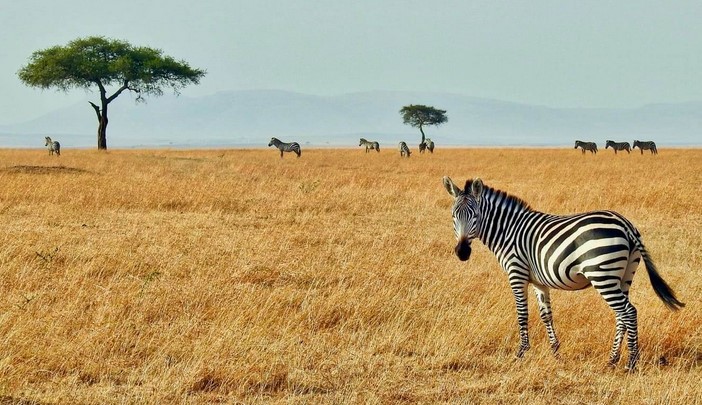Best Movies Africa: Exploring Cinematic Treasures from the Continent

Source:https://www.nomadicmatt.com
When global audiences think of outstanding films, they often reference Hollywood blockbusters or European art-house cinema. However, Africa’s film industry is undergoing a renaissance that deserves international attention. From the bustling streets of Lagos to the historic medinas of Marrakech, African filmmakers are creating compelling stories that challenge stereotypes and offer authentic insights into the continent’s diverse cultures. The best movies Africa has produced not only reflect local realities but also resonate universally, bridging gaps in understanding and redefining African storytelling on the global stage.
1. A Vibrant Tapestry of Regional Film Industries
Africa is not a monolith, and neither is its cinema. The continent is home to a diverse array of regional film industries, each with its own style, language, and thematic focus. The most famous of these is Nollywood, Nigeria’s prolific movie industry, which ranks among the top film producers globally in terms of output. Known for its fast-paced production schedules and deeply rooted narratives, Nollywood has created stars and stories that captivate not only Nigerians but also millions across the African diaspora.
Meanwhile, South Africa’s film industry offers high production value and often focuses on social justice, apartheid legacy, and identity. Films like Tsotsi (2005), which won the Academy Award for Best Foreign Language Film, demonstrate the country’s cinematic potential. South African directors are increasingly gaining international recognition for their storytelling techniques, technical mastery, and bold thematic choices.
North Africa, especially Morocco, Egypt, and Tunisia, has a rich cinematic history that spans decades. Egyptian cinema, in particular, was once known as the “Hollywood of the Middle East.” Contemporary films from the region explore themes of religion, politics, and gender, often navigating strict censorship to convey powerful messages.
Subheading: East Africa and the Rise of Independent Voices
Though less industrialized than Nollywood or South African cinema, East African countries like Kenya, Uganda, and Tanzania are making waves with independent films. These productions often have limited budgets but excel in creativity and authenticity. Films such as Rafiki (2018) by Wanuri Kahiu challenged local laws and sparked global debates about LGBTQ+ rights in Africa. The movie premiered at the Cannes Film Festival, showing that East African stories are gaining traction on the international scene.
Similarly, Ethiopia’s growing film community is beginning to attract attention with dramas rooted in the country’s complex history and culture. These films offer nuanced perspectives and provide a counter-narrative to external portrayals of the region.
2. Themes that Define African Cinema
African cinema is defined not only by its geography but by the themes it tackles. Storytelling across the continent is deeply connected to history, community, and identity. One of the most persistent themes is post-colonial identity—filmmakers examine the lingering effects of colonialism and how they manifest in modern societies. La Noire de… (1966) by Senegalese director Ousmane Sembène, often referred to as the father of African cinema, was one of the earliest films to explore this issue.
Another central theme is gender and the role of women in society. Films like The Figurine (Nigeria) and Yomeddine (Egypt) delve into how women navigate traditional roles, societal expectations, and modernity. These stories often blend personal struggles with larger cultural contexts, making them relatable across global audiences.
Conflict and reconciliation are also explored, particularly in countries that have experienced civil war or ethnic tensions. Rwandan cinema, for instance, includes poignant works like Sometimes in April and Kinyarwanda, which reflect on the genocide and the country’s journey toward healing.
Additionally, African science fiction and fantasy—dubbed Afrofuturism—is a growing genre that combines African mythology with speculative futures. This movement was popularized internationally by the success of Black Panther, but African filmmakers like Neill Blomkamp (District 9) and Wanuri Kahiu have long been pushing the boundaries of genre storytelling.
3. Global Recognition and Streaming Platforms
The last decade has seen a surge in international recognition for African films. Film festivals like FESPACO (Panafrican Film and Television Festival of Ouagadougou) have provided a platform for decades, but now, global festivals like Berlinale, Sundance, and Toronto International Film Festival regularly feature African films.
Streaming platforms such as Netflix, Showmax, and Amazon Prime Video have played a pivotal role in democratizing access to African cinema. Netflix, in particular, has invested heavily in African content, launching original productions like Queen Sono (South Africa), Blood & Water (South Africa), and The King’s Horseman (Nigeria). These platforms provide unprecedented exposure and encourage cross-cultural dialogue by making films accessible worldwide.
Moreover, African diasporic filmmakers are contributing significantly to the narrative, often creating stories that straddle two cultures. This adds a layered perspective to the cinematic conversation and enriches the storytelling with themes of migration, identity crisis, and cultural duality.
As the global appetite for diverse stories grows, there has never been a better time to explore the best movies Africa has to offer. These films are not only artistic expressions but powerful cultural documents that capture the continent’s complexity, resilience, and creativity. From gritty urban dramas and heartwarming comedies to historical epics and sci-fi adventures, African cinema offers something for every viewer. As filmmakers continue to push boundaries and gain global platforms, the world is finally beginning to recognize the rich tapestry of voices that have always existed in African storytelling.





